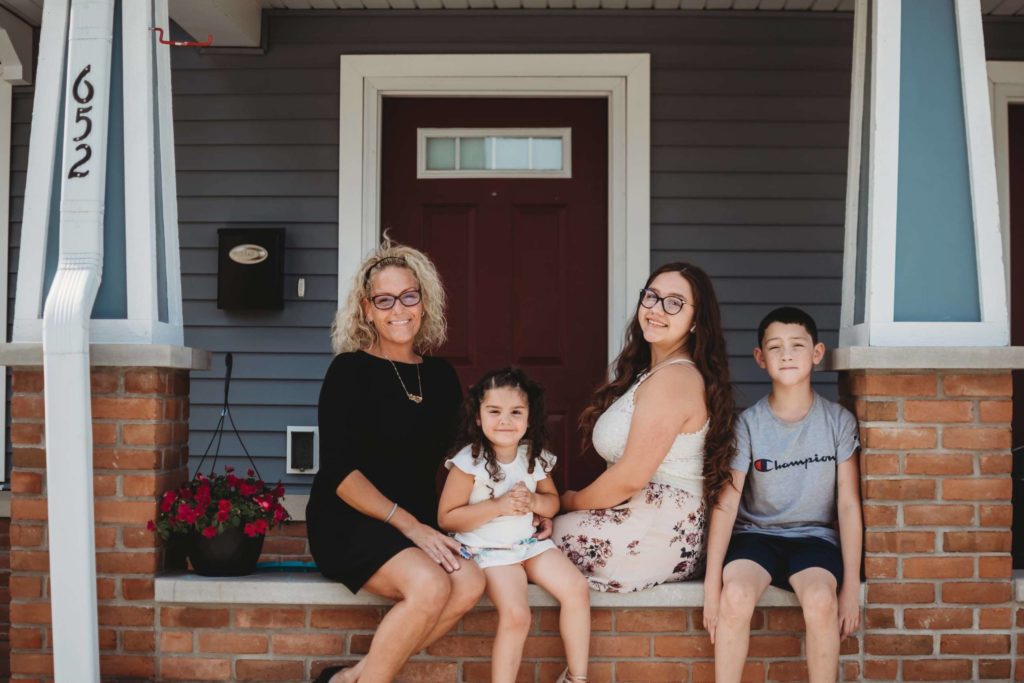How Inadequate Housing Impacts a Child’s Upbringing

© Habitat for Humanity International/Jason Asteros
Article written by guest contributor, Riley Juno, and exclusively submitted to Habitat for Humanity Kent County
The housing crisis in America is growing at a frightening scale. Housing prices are increasing, the gap between rent and income is widening, and today, nearly half of renters are cost burdened. There is a lack of affordable housing across all demographics, and concerns over its lasting effects on Americans are taking over the discourse.
This is because leading studies reveal how housing is a crucial factor in community health. Expert social workers work to improve community safety, and are well-versed in social determinants of health like built environment and economic stability. Just like physical health, there are means to remedy the harmful impacts of housing gaps, and social workers work to address these gaps through counseling or rent assistance.
Ultimately however, these programs don’t tackle the root causes. Assistance programs can’t replace the role of actual affordable housing, and unless more permanent legislative measures are provided, we risk lifelong harm to our community members — particularly children and teens. Here’s a closer look at how inadequate housing impacts our youth.
Impacts on health
From an initial glance, the material effects of inadequate housing are clear: a home without proper sanitation and access to clean water can result in the spread of diarrhea, food poisoning, and other diseases. Evidence reveals that infants born into homelessness or to homeless parents were significantly more likely to visit the ED or be hospitalized, and showed a higher rate of low birthweight and other complications.
While inadequate housing can lead to physical concerns and ailments, it’s also crucial to explore how a child’s psychological health is affected as well. Higher baseline symptoms of depression, anxiety, and aggression from elementary school through young adulthood are associated with poor housing quality and with the neighborhood environment being a source of daily stress.
Impacts on education
Poor mental health affects one’s ability to concentrate, and the relationship between economic needs and academic performance has long been explored by experts. Consistent evidence shows that poorer conditions result in poorer grades, and children who grew up in inadequate housing tend to start school with fewer academic skills. This means lower kindergarten readiness and reading achievement scores.
The gap then persists because families prioritize the other needs of the household over health or academic performance. Children want to learn, but their priorities shift.
Unfortunately, schooling, or housing stability to be exact, can shape one’s future economic well-being. Psychological problems experienced during childhood have been shown to reduce adult earnings, which throws these young Americans into a vicious cycle.
Impacts on worldview
A child experiencing material deprivation can result in a higher level of pessimism or even materialism when they grow into adulthood.
This can affect how they build relationships, especially seeing how inadequate housings can result in an absence of familial bonds. After all, poor-quality housing may cause parents additional stress and limit their ability to regulate family activities, therefore disrupting the social and emotional development of a child. This affects how they learn, solve problems, and relate to others, effectively creating lifelong consequences.
A child’s well-being must be situated within the context of their social-economic background. One of the keys to a child’s healthy development — which can eventually reduce healthcare costs, lead to better school performance, and even strengthen the economy — is adequate housing conditions.
That is why Habitat for Humanity of Kent County’s vision is a world where everyone had a decent place to live.
Here, our traditional program helps homebuyers qualify for an affordable, low-interest mortgage through sweat equity, whereas our accelerated program preserves affordable housing the stock available for the already mortgage-ready. By empowering homeowners with continuous long-term support in a safe neighborhood, Habitat Kent helps families and children in West Michigan move toward a better future.

